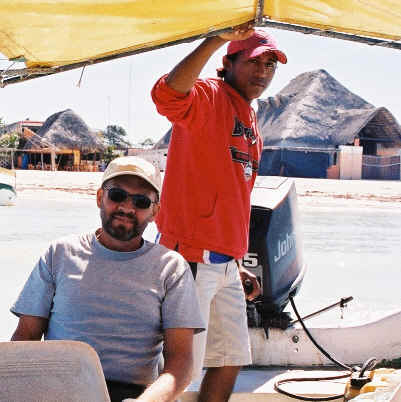I am reading “The Banana Wars” , “A History of United States Military Intervention in Latin American from the Spanish-American War to the Invasion of Panama” by Ivan Musicant.
The book recounts an incident involving USA troops during the occupation of Haiti in the early 1900s that stands, it seems to me, in stark juxtaposition to the recent revelation of the murders of noncombatants by US troops in Haditha, Iraq.
USA troops occupied Haiti in a humanitarian effort to end rule by a mob of mercenaries whom constantly hired themselves out to seize power for whomever would pay them. Within weeks or months after seizing power for one patron, another aspirant would hire the thugs to seize power for him. Meanwhile the civilian populations was starving and the mercenary gangs ran wild throughout the country looting, murdering and extorting. Finally President Wilson had had enough and sent troops. The military commander made it absolutely clear to the marines and Navy “blue jackets” that the Haitians were not to be mistreated and that US troops were there to establish order, feed the population, help in developing the economy, and end the cycle of continuous “revolution”.
There was an incident where one of the US troops accidentally drowned while swimming in a creek. As US troops assembled at the creek to recover the body a group of Haitians gathered to observe. Amongst the Haitians, armed with a rifle and a machete, was a exceptionally large fellow well know amongst the locals as a ruthless, violent bully who had earlier been embarrassed by one of the US marine officers at the creek directing recovery of the marine body. The bully raised is rifle to shoot the US officer but when his gun did not fire he swung his machete at the nearest US marine, almost completely severing his head. Upon seeing their comrade brutally murdered the marines began moving into the crowd of Haitians to exact revenge.
A marine sergeant on scene immediately ordered his troops to halt and to remain silent. The sergeant sent for reinforcements and ordered his troops to surround the fallen marine and to remain silent. The sergeant had prevailed upon his troops to remain professional soldiers and to avoid harming civilians. Later the fellow who had murdered the marine was apprehended, jailed and tried.
In Haditha, you will recall, a soldier was killed by a roadside bomb and his comrades moved into a nearby house and exacted revenge by murdering 11 men, women, and children.
It seems to me the sergeant in Haiti in the early 1900s is a true American hero and that if US troops were used for such humanitrian missions such as was the case in Haiti the majority of the people of the world wouldn't hate us.

1 comment:
I’m not surprised. It is a measure of the disaster that has been the Bush administration that in the five years since the 9-11 attacks the US has gone from receiving expressions of support from almost every country in the world, including the likes of Cuba, to now being considered a major threat to world peace.
Of course, if not for the Supreme Court’s insinuation into the 2000 election or Ohio Secretary of State’s, and Bush campaign manager, discriminatory distribution of voting machines in 2004 Bush would not be president now.
Post a Comment